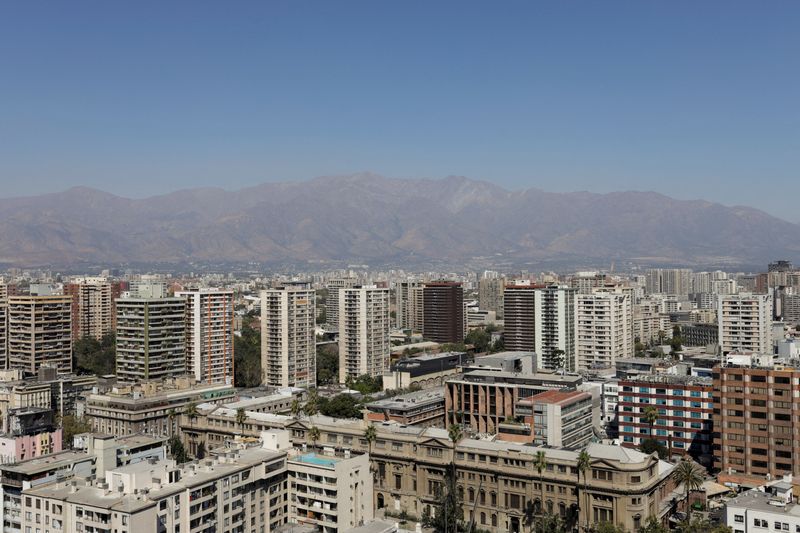SANTIAGO (Reuters) -Chile's economic activity frustrated markets and government officials in December, posting a surprising drop on a yearly basis even after the local finance minister assured that last year's recession had been left behind.
The IMACEC economic activity index fell 1.0% in December when compared to the same period of the previous year, the central bank said on Thursday, below all estimates in a Reuters poll of economists whose median forecast was a 0.7% increase.
Economic activity in the world's largest copper producer was also down 1.1% from the previous month.
The result contradicted projections from Finance Minister Mario Marcel, who said last week the IMACEC report for December could confirm the end of a recession as he reinforced an estimate of 2.5% economic growth for 2024.
Chile faced a sharp economic downturn in 2023 after a rapid post-pandemic recovery. The economy struggled while inflation soared, leading the central bank to hike interest rates which it has now began cutting as inflation cooled.
The latest rate cut came on Wednesday, when the monetary authority lowered borrowing costs by 100 basis points to 7.25%. One board member voted for a deeper 125-basis-point cut.
The fresh IMACEC figures, Pantheon Macroeconomics' chief Latin America economist Andres Abadia said, "highlight that the economy is not out of the woods yet, and that further interest rate cuts are needed."
"We still believe that the worst for the Chilean economy is over, but temporary shocks, including bad weather, and weak external demand, are set to remain drags."

The year-on-year economic activity drop in December was driven by lower goods production and commerce activity, which were partially offset by an increase in service activity, the central bank said.
On a sequential basis, it added, a drop in mining activity weighed on the broader reading.
